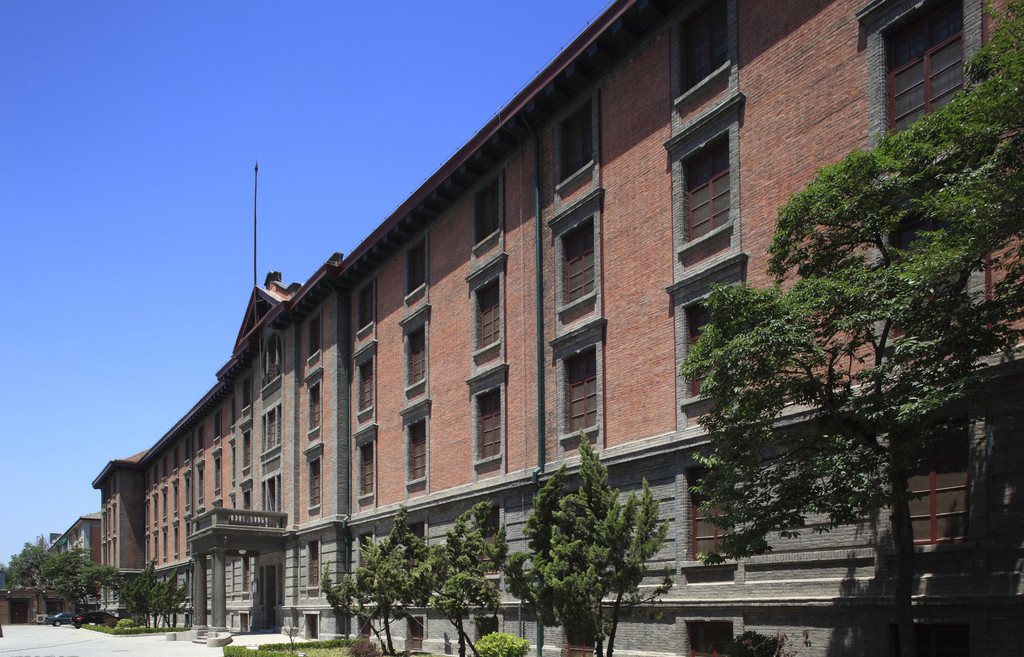New Culture Movement

The Red Building, known in Chinese as Honglou, is the former site of Peking University. It is regarded as the birthplace of the May Fourth Movement in 1919. Nowadays, it is the New Culture Movement Memorial of Beijing.
Asignificant ideological and cultural event in modern Chinese history, the New Culture Movement of the mid-1910s and 1920s deeply influenced the development course of the nation’s modernization.
Many Chinese intellectuals, including Hu Shih (1891-1962), Chen Duxiu (1879-1942), Lu Xun (1881-1936) and Li Dazhao (1889-1927), attacked traditional Confucian ideas and called for the creation of a new Chinese culture based on global and Western standards, especially democracy and science. In this context, Marxist theories were also introduced to China and gained currency.
Roads to modernization
After the 1911 Revolution, or Xinhai Revolution, Chinese intellectuals were left despondent by the elusiveness of modernization through institutional reforms, especially during the brutal rule of the Northern Warlords Government (1912-1927), when control of the country was divided among military cliques.
Despite the efforts of many intellectuals, China descended into chaos after the founding of Republic of China (1912-1949). Intellectuals felt helpless and mourned the fate of the nation.
They urgently began seeking ways to “save” China, reflecting on how to realize modernization in a society with little modern consciousness. One of the paths to modernization explored by intellectuals was cultural.
They also conducted systematic research into construction of a modern society modeled on the West and the long-lasting problems of traditional Chinese culture, while sharing cultural and political criticisms of current society.
An article by Chen titled “Nineteen Sixteen” was published in the New Youth magazine. In the article, Chen expressed his dissatisfaction with society and his hope for the new generation to cultivate fresh cultural values. Some ideas were shared among intellectuals, though advocated in different ways.
China tried to adopt certain facets of Western society, yet still succumbed to the reign of the Northern Warlords Government.
In a bid to “save” the nation, intellectuals directed their attention to traditional culture and determined that it was impeding modernization. This gave rise to anti-Confucianism and heightened expectations that China could catch up to advanced Western societies.
Intellectuals regarded the survival of the nation as the highest pursuit, which was to be achieved by breaking the shackles of traditional Chinese culture that was considered a relic of the past and of no use to the future. These drastic measures became the core of the New Culture Movement.
Modern consciousness
Intellectuals generally aimed to preserve national independence and achieve self-reliance by embracing Western culture. Emotional ties between family and country served as an internal driving force to establish a democratic republic.
In the rising tide of modernization, intellectuals gradually realized the necessity of adjusting emotions to new circumstances. They had previously paid more attention to the national state and traditional culture before accepting modernization. In theory and practice, families had equality and freedom, and the nation evolved into a modern state. Modern consciousness effectively advanced the country’s modernization.
Intellectuals largely preferred to strike a balance between emotional ties between family and country and modern consciousness rather than assimilating both.
The idea of “Chinese-style Westernization” was first popularized in the late Qing Dynasty by combining Chinese patriotism and cultural self-confidence to push forward openness and modernization. The internal cultural and psychological climate of the time meant dissidents didn’t dare challenge traditional culture.
China’s grapple with Westernization
In the face of disarray after the Xinhai Revolution, some intellectuals reflected on the simple addition of emotional ties between family and country and modern consciousness. Chinese scholar Qian Xuantong (1887-1939) considered both to be largely representative of intellectuals’ state of mind. All intellectuals who fiercely opposed traditional elements gave a dual response to the grim reality.
Cheng Meidong is the deputy dean of the School of Marxism at Peking University.
